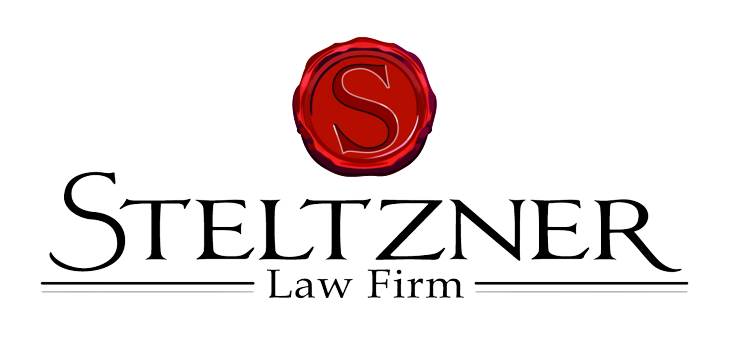Understanding Zoning and Land Use Regulations in North & South Carolina
Navigating the intricate world of zoning and land use regulations in North and South Carolina is a critical aspect of any successful property development project. Understanding the rules, requirements, and potential obstacles involved in land development can significantly impact the outcome of your property venture, affecting its feasibility, profitability, and long-term success. A thorough grasp of local zoning and land use regulations, coupled with expert legal guidance, lays the foundation for thriving property development projects in the dynamic North and South Carolina real estate market.
Embark on a journey into the multifaceted world of zoning and land use regulations, guided by the skilled legal counsel of the Steltzner Law Firm, LLC. Armed with key insights into North and South Carolina’s zoning landscape, you’ll be well-equipped to tackle the challenges involved in property development projects and foster rewarding investment opportunities. By embracing the complexities of local regulations, you will set the stage for sustainable, profitable growth in your property ventures.
Understanding Zoning Classifications in North & South Carolina
In both North and South Carolina, zoning regulations classify land into various categories, determining the permitted types of uses and development on that property:
- Residential Zones: Residential zoning governs the construction and occupancy of single-family homes, multi-family dwellings, or planned developments and may include restrictions on lot sizes, building heights, and parking requirements.
- Commercial Zones: These zones encompass retail, office, and service-oriented establishments. Commercial zoning regulations often dictate the size, setbacks, and types of businesses allowed within a given area.
- Industrial Zones: Industrial zoning caters to manufacturing, warehousing, research, or distribution centers and typically includes regulations on noise levels, emissions, waste disposal, and potential environmental impact.
- Agricultural Zones: Agricultural zoning establishes rules for land use, specifically addressing farming activities, livestock and crop production, and the preservation of open space and natural resources.
- Mixed-Use Zones: Mixed-use zones permit a combination of residential, commercial, and industrial uses within a single zoned area, promoting diverse and integrated communities.
Navigating the Permitting Process for Property Development
Successfully initiating a property development project in North and South Carolina requires a thorough understanding of the permitting process, which comprises several crucial steps:
- Preliminary Research: Conducting comprehensive research on local zoning ordinances, setbacks, density regulations, and allowed uses can help you assess the feasibility of your development project.
- Site Plan and Development Plan Review: Develop a site plan, adhering to local zoning requirements, and submit it to the appropriate authorities for review and approval.
- Acquisition of Permits: Upon receiving approval for your site plan, obtain the necessary building, land disturbance, environmental, sign, and other permits that might be required for your specific project.
- Building Inspection and Certificate of Occupancy (CO): Upon completion of construction or development, request an inspection from local building or planning departments. Once the property passes inspection and meets all zoning regulations, the issuance of the Certificate of Occupancy will permit legal occupancy of the developed space.
Variances and Appeals in Zoning Regulations
In some cases, obtaining a variance or appealing a zoning decision is necessary to accommodate specific development goals:
- Variances: A variance allows a property owner or developer to deviate from the established zoning regulations, typically requested when strict compliance would impose hardship or practical difficulties. Variances can be granted for area or use provisions, subject to local government approvals and relevant public hearings.
- Appeals: If a local planning or zoning board denies a permit, variance, or other zoning request, an appeal can be filed to challenge the decision. Appeals are typically addressed through a local Board of Adjustment or similar entity, which has the authority to overturn the earlier decision or provide an alternative solution.
The Critical Role of Real Estate Attorneys in Property Development
Partnering with an experienced real estate attorney is invaluable when navigating zoning and land use complexities in property development:
- Legal Guidance: An attorney provides expert guidance on interpreting zoning ordinances, understanding local land use regulations, and ensuring compliance throughout the development process.
- Permit and Variance Applications: A real estate attorney can assist in preparing and submitting permit applications, variance petitions, and other necessary paperwork, maximizing the chances of a smooth, timely approval.
- Appeals and Dispute Resolution: Attorneys offer legal support during zoning appeals or dispute resolution processes, representing your interests and working towards favorable outcomes.
Conclusion
Knowledge of zoning and land use regulations is crucial for the success of property development projects in North and South Carolina. With a deep understanding of these regulations, supported by the seasoned legal expertise of the Steltzner Law Firm, you can navigate the complexities of the zoning landscape and ensure compliance with all relevant requirements, paving the way for favorable investment outcomes.
Embrace the challenges of property development projects in North and South Carolina with confidence, supported by a solid foundation in zoning and land use regulations. Pave the path to fruitful investment opportunities and long-term success in the dynamic world of real estate with the expertise of Steltzner Law Firm, LLC, your trusted real estate attorney in Rock Hill, SC.
